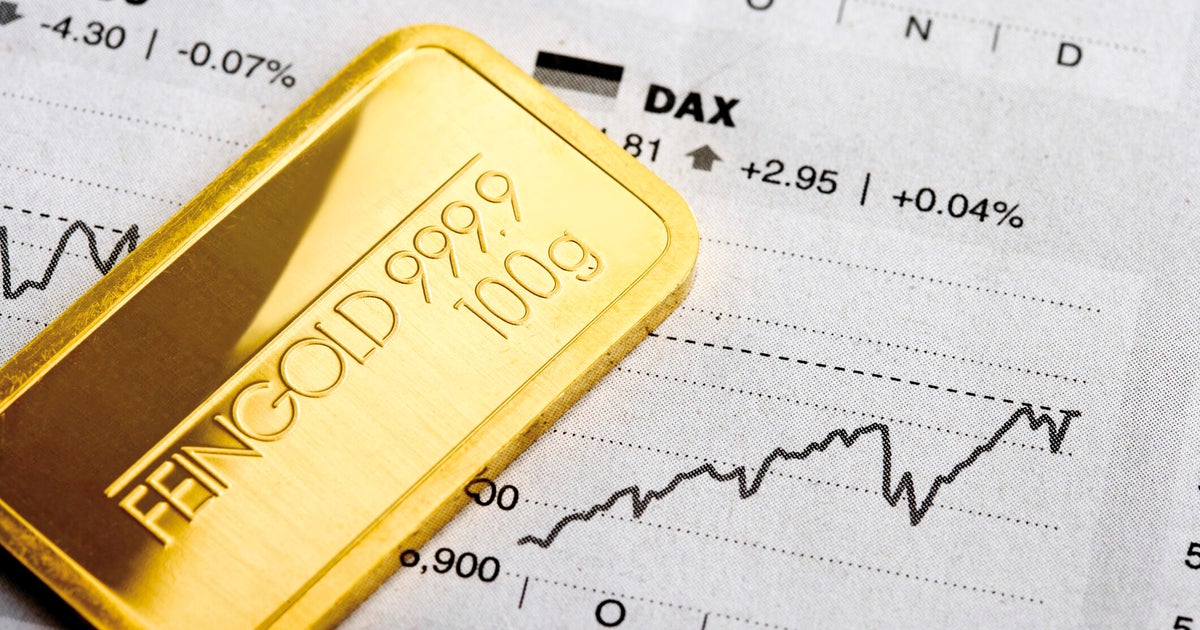U.S. stocks rally to close higher after sharp selloff
Wall Street rebounded after stocks on Tuesday saw their worst fall in two years on fears about higher interest rates stoked by persistent inflation.
The S&P 500 rose 13 points, or 0.3%, to close Wednesday at 3,946. The Dow rose to 31,135, or 0.1%, a day after the blue-chip index lost more than 1,250 points. The Nasdaq gained 0.7%.
"To say the market reacted badly to the inflation report would be an understatement," George Smith, a strategist at LPL Financial Portfolio, said in a note. "The S&P 500 and Nasdaq indices posted their worst days since 2020. but based on history such steep daily declines have proven to be buying opportunities for patient investors willing to wait out volatility."
A report on inflation at the wholesale level showed prices are still rising rapidly, with pressures building underneath the surface, even if overall inflation slowed. It echoed a report on inflation at the consumer level Tuesday, which raised expectations for interest-rate hikes and triggered a rout for markets.
Tuesday's report on U.S. consumer prices came in at a hotter-than-expected rate of 8.3% in August. That dashed hopes of a more rapid retreat for inflation that could have slowed the aggressive interest rate hikes rolling out from the Federal Reserve in its bid to cool scorching price increases.
Those interest hikes, while they will eventually tame inflation, also run the risk of causing a sharp decline in economic activity, growth and jobs.
Tensions between the U.S. and China also weighed on markets. Chinese leader Xi Jinping and Russian President Vladimir Putin are due to meet later in the week, underscoring the warming ties between the two authoritarian governments as the West pushes ahead with sanctions against Moscow for its invasion of Ukraine.
The meeting will take place Thursday in Samarkand, Uzbekistan.
The U.S. is meanwhile reportedly considering new sanctions against Beijing aimed at deterring aggression against Taiwan, a self-governed island democracy that China claims as its own territory.
On Tuesday, the Dow lost more than 1,250 points and the S&P 500 sank 4.3% after Tuesday's hotter-than-expected report on inflation. The Nasdaq composite closed 5.2% lower.
"Stocks are trying to stabilize, but the whole tape is on edge after the Tues decimation, and few people have much confidence in an immediate rebound," Adam Crisafulli of Vital Knowledge said in a note to investors.
Bond prices also fell sharply, sending their yields higher. The yield on the two-year Treasury, which tends to track expectations for Fed actions, soared to 3.74% from 3.57% late Monday. The 10-year yield, which helps dictate where mortgages and rates for other loans are heading, rose to 3.42% from 3.36%.
Traders now see a one-in-three chance the Fed may hike its benchmark rate by a full percentage point next week, quadruple the usual move.
The Fed has already raised its federal funds rate four times this year, with the last two increases by three-quarters of a percentage point. The rate is currently in a range of 2.25% to 2.50%.
Higher rates hurt the economy by making it more expensive to buy a house, a car or anything else usually purchased on credit. Mortgage rates have already hit their highest level since 2008, creating pain for the housing industry. The hope is that the Fed can pull off the tightrope walk of slowing the economy enough to snuff out high inflation, but not so much that it creates a painful recession.
- How to recession-proof your budget so that you're ready for whatever lies ahead
- The economy is creaking, but likely isn't in a recession
- What we've learned about recessions as Americans brace for impact
Tuesday's data casts doubt on hopes for such a "soft landing." Higher rates also hurt prices for stocks, bonds and other investments.
"Tuesday's sell-off is a reminder that a sustained rally is likely to require clear evidence that inflation is on a downward trend," said Mark Haefele, global wealth management chief investment officer with UBS. "With macroeconomic and policy uncertainty elevated, we expect markets to remain volatile in the months ahead."
Expectations for a more aggressive Fed have also helped the dollar add to its already strong gains for this year. The dollar has been surging against other currencies in large part because the Fed has been hiking rates faster and by bigger margins than many other central banks.
U.S. benchmark crude picked up 10 cents to $87.41 per barrel in electronic trading on the New York Mercantile Exchange. It lost 47 cents to $87.31 on Tuesday. Brent crude, the international pricing standard, gained 10 cents to $93.27 per barrel.
On top of inflation concerns, U.S.-China tensions and war in Ukraine, business and government officials are bracing for the possibility of a nationwide rail strike at the end of this week that could paralyze an already discombobulated supply chain.
The railroads have already started to curtail shipments of hazardous materials and have announced plans to stop hauling refrigerated products ahead of Friday's strike deadline. Businesses that rely on Norfolk Southern, Union Pacific, BNSF, CSX, Kansas City Southern and other railroads to deliver their raw materials and finished products are planning for the worst.
Biden administration officials are scrambling to develop a plan to keep goods moving if the railroads shut down. The White House is also pressuring the two sides to settle their differences, and a growing number of business groups are lobbying Congress to be prepared to intervene and block a strike if they can't reach an agreement.
"The rail strike risk is creeping into the narrative, although stocks aren't too worried about this (even if there is a stoppage, most people assume it will end quickly)," Crisafulli said.



